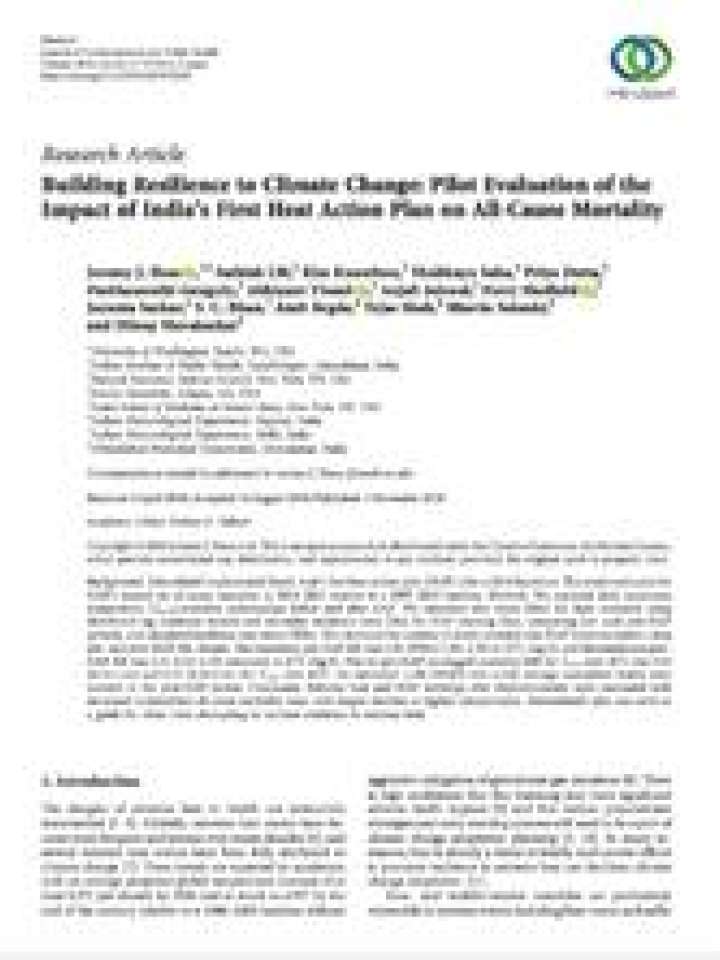Building resilience to climate change: Pilot evaluation of the impact of India’s first heat action plan on all-cause mortality
Ahmedabad implemented South Asia’s first heat action plan (HAP) after a 2010 heatwave. This study evaluates the HAP’s impact on all-cause mortality in 2014–2015 relative to a 2007–2010 baseline. The authors analyzed daily maximum temperature (Tmax)-mortality relationships before and after HAP. The authors estimated rate ratios (RRs) for daily mortality using distributed lag nonlinear models and mortality incidence rates (IRs) for HAP warning days, comparing pre- and post-HAP periods, and calculated incidence rate ratios (IRRs). The authors also estimated the number of deaths avoided after HAP implementation using pre- and post-HAP IRs.
The study reveals that an estimated 1,190 average annualized deaths were avoided in the post-HAP period. Extreme heat and HAP warnings after implementation were associated with decreased summertime all-cause mortality rates, with largest declines at highest temperatures. Ahmedabad’s plan can serve as a guide for other cities attempting to increase resilience to extreme heat.
Explore further
